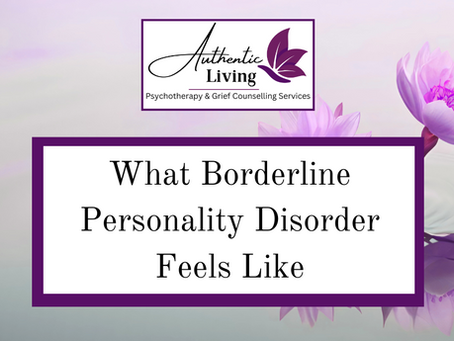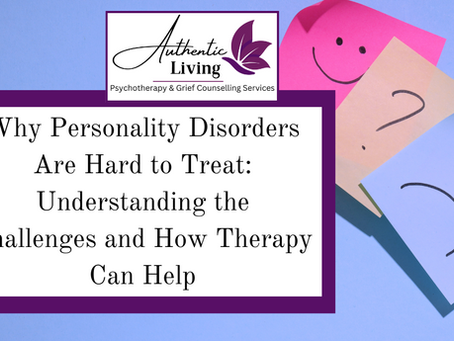top of page



What It Feels Like to Live With Borderline Personality Disorder
With Borderline Personality Disorder, emotions surge like tidal waves, raw and overwhelming, often leading to impulsivity or emptiness. A tone shift or unanswered text can spark intense fear of abandonment, spiraling into paranoia or all-or-nothing thinking. Therapy can guide those with BPD toward stability and hope.
-
Aug 27, 20253 min read


Relationships and Personality Disorders: Understanding Both Sides
Being in a relationship with someone who has a personality disorder can bring both challenges and moments of deep connection. At the same time, living with a personality disorder and trying to build a healthy relationship can feel overwhelming and misunderstood. Understanding both perspectives helps remove shame and opens the door to growth, compassion, and healthier connections.
-
Aug 19, 20254 min read


Why Personality Disorders Are Hard to Treat: Understanding the Challenges and How Therapy Can Help
Personality disorders are challenging to treat because they involve long-standing patterns of thinking, feeling, and relating to others. Each disorder, from borderline to narcissistic to avoidant, presents unique hurdles in therapy. At Authentic Living London, our therapists provide specialized, evidence-based support, helping clients develop healthier coping strategies, improve relationships, and navigate healing from complex issues such as narcissistic abuse.
-
Aug 15, 20253 min read


What is Narcissism, really?
“Narcissist” has become a popular word in conversations, social media, and even casual jokes. It is often used to describe someone who is...
-
Aug 10, 20255 min read
bottom of page
